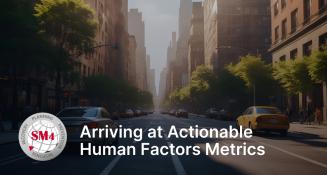Sleep science is continually evolving. We collaborate with the most prominent researchers in the field.
We are actively involved in supporting a variety of sleep research studies around the world. We are also leaders in the performance of high-fidelity field studies of operational alertness. Our R&D activities fundamentally support our efforts to create products that are grounded in the best science.
Pulsar latest
Portside expands Fatigue Risk Management capabilities with Pulsar Integration
Portside, a leading provider of modern, cloud-based software solutions for business aviation, announced expanded integrations with Pulsar Informatics, the industry leader in fatigue risk management solutions. Pulsar is now fully integrated into Avianis, Portside’s comprehensive flight operations platform, and Baldwin Safety & Compliance, the industry’s most scalable SMS solution.

Partnering to advance fatigue risk management in vertical aviation
Vertical Aviation International (VAI) and Pulsar Informatics have partnered to provide special benefits to VAI members, helping flight and maintenance operators proactively manage fatigue and improve safety outcomes across their operations.

Arriving at Actionable Human Factors Metrics
Fatigue reports offer key safety insights when paired with objective and subjective measures. By distinguishing between operational and individual fatigue factors, operators can take targeted action. Pulsar Informatics helps turn these data points into meaningful metrics to support effective fatigue risk management.